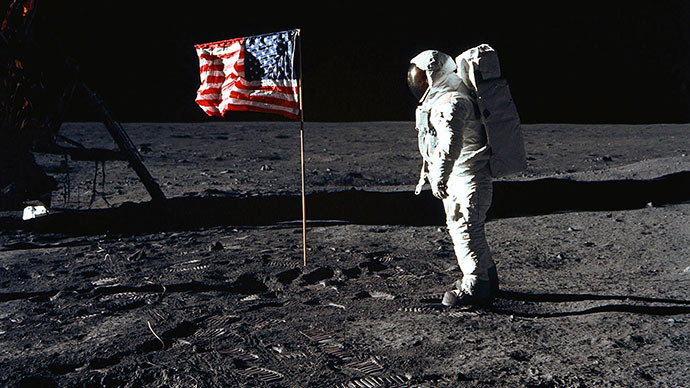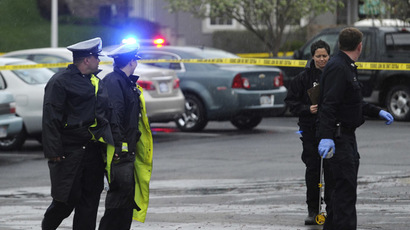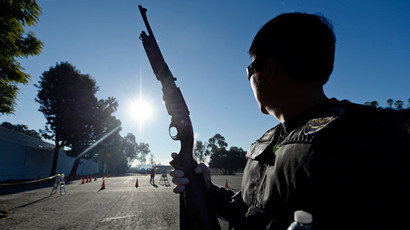Conspiracy theory? Half of Americans believe them, research shows

If you’ve ever doubted any sort of official narrative, then you’re far from alone: experts say that more than half of the people in the United States believe in at least one so-called conspiracy theory.
Recent studies suggest that around 50 percent of the American populations subscribes to at least one conspiracy theory, National Public Radio social science correspondent Shankar Vedantam told NPR’s Morning Edition this week.
Whether it’s concerns about the true nature of the moon landing, the Kennedy assassination or just about anything imaginable — experts say at least half of the US isn’t so sure what to think about some of the most controversial topics of the last few generations.
Vedantam told NPR that researchers Eric Oliver and Thomas Wood at the University of Chicago have come up with the latest staggering statistic, which relies on data recorded by four nationally representative surveys conducted between 2006 and 2011.
Using those polls, Oliver and Wood wrote, “[w]e find that half of the American public consistently endorses at least one conspiracy theory and that many popular conspiracy theories are differentiated along ideological and anomic dimensions.”
“In contrast with many theoretical speculations, we do not find conspiracism to be a product of greater authoritarianism, ignorance, or political conservatism. Rather, the likelihood of supporting conspiracy theories is strongly predicted by a willingness to believe in other unseen, intentional forces and an attraction to Manichean narratives,” they wrote. “These findings both demonstrate the widespread allure of conspiracy theories as political explanations and offer new perspectives on the forces that shape mass opinion and American political culture.”
According to Vedantam, the research suggests that not everyone harbors the same doubts, either.
“So 19 percent of Americans believe the U.S. government was behind the 9/11 attacks; 25 percent believe the recent financial crisis was caused by the small cabal of Wall Street bankers; 11 percent of people believe the government is mandating a switch to compact florescent light bulbs because the light bulbs make people obedient and easy to control,” he told NPR.
“I think what this research is suggesting is that the willingness to believe in one of these theories is really widespread across the spectrum. And different groups of people might believe different theories, but the propensity to believe seems really widespread,” he added.














